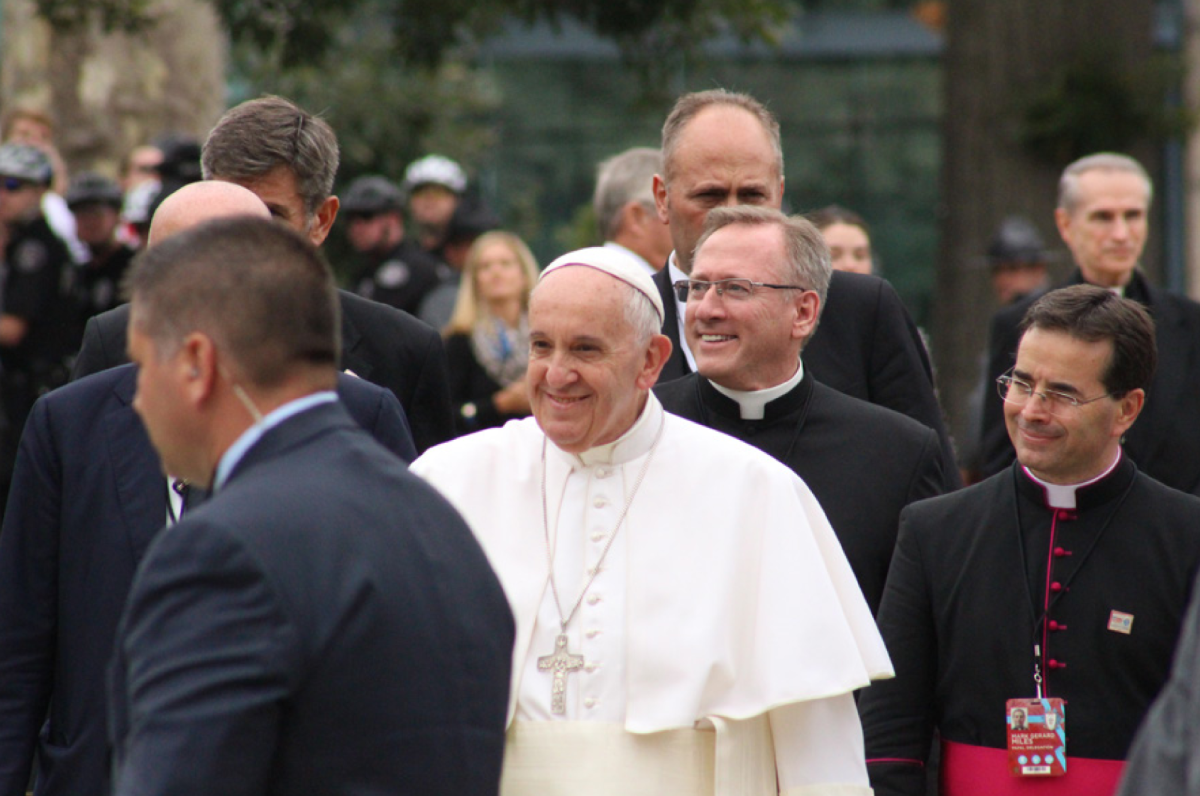Consulting group hired to conduct university financial analysis
Members of the Huron Consulting Group arrived at Saint Joseph’s University last week to begin conducting a financial analysis of the school, which will last ap- proximately eight weeks.
Throughout this time, according to an email message sent from University President C. Kevin Gillespie, S.J., ’72, to all St. Joe’s employees, the Huron team will be working with university individuals to “identify opportunities to best manage our costs within the level of projected revenue growth while also operating more efficient- ly and effectively.”
Essentially, Huron will be looking over all aspects of the university, from academics to athletics to facilities management, to see where costs can be better managed and opportunities for efficiencies are present.
“It’s finding a way to get one office do- ing what two offices are [currently] doing,” said Rosalind Reichard, interim provost.
A sub-committee of the Interim Planning and Budget Committee (IPBC), known as the Sub-Committee on Cost Structure Analysis, will serve as the steer- ing committee in this eight-week effort and essentially guide Huron throughout the process.
The Sub-Committee on Cost Structure Analysis was given the responsibility of hiring a firm after the university administration and IPBC decided that this study needed to be completed.
According to Joseph Wutkowski, ’16, treasurer of the University Student Senate and member of the Sub-Committee on Cost Structure Analysis, the hiring process began last semester when three firms were invited to campus to be interviewed. It was from those three firms that Huron was chosen.
Wutkowski explained that while mak- ing the hiring decision, the committee looked into institutions where the firms had completed work previously, and Huron was given many good reviews.
[Huron] gave us references and we even went outside the references to other schools and we talked to all the other universities, and they said Huron did a good job,” said Wutkowski. “The references were actually a big deciding factor on how we picked. The most local one would be Drexel; they just did a huge project there.”
“The idea, I think, is that we needed the expertise to identify areas in the budget and the cost structure where we could make some changes,” explained Robert Moore, Ph.D., professor of sociology and member of the IPBC.
Moore also explained why there seemed to be a need to bring in an external firm. “I guess it was the administration’s view that it was better to bring somebody in from the outside and take an objective look at everything and paint us a picture about how we’re spending our money, where they may be inefficiencies, [and] where they may be potential for savings,” he said.
Cary Anderson, Ph.D., vice president of Student Life, agreed and said that for him, personally, “It’s helpful to have an outside set of eyes come in.”
Anderson met with members of Huron last week to explain to the firm what the Of- fice of Student Life is and what it does. When asked what kinds of suggestion he thinks Huron will make, Anderson replied that he believes there will be many financial suggestions, but also a few non-monetary ones as well.
These suggestions could also help make the program more efficient. “You may not save any money, but you may provide a better service or better experience for students,” Anderson said.
When asked how he thinks this analysis will help the future of St. Joe’s, Moore expressed that he feels the information collected could be very valuable to the prospective new members of the administration. “For anybody new coming in, I think this could provide some very valuable information for that individual to help him or her get off to a
faster start rather than having to learn everything from the ground up,” Moore said. Moore also explained that this examination can help provide the university with standards for costs and spending as compared to other institutions.
“I would think if [Huron has] done this at other schools that they will be able to provide an additional service to us, which is providing benchmarks,” said Moore. “So, you know, the XYZ department costs this much here, what is the benchmark? Are we spending more for the same thing than other places, or are we spending less?”
In the current beginning stages of the process, Wutkowski explained that Huron will be meeting with different individuals across campus, which includes a small group of Stu- dent Senators, to conduct interviews and learn about different aspects of the university. Next, a survey will be sent out to all faculty and administration. According to Wutkowski, the surveys are “a way to communicate so that everybody can share their ideas.”
Finally, Huron will compile all the collected data and focus on specific issues, departments, and sections in which improvements can be made.
Huron will present a report to the Sub-Committee that will include a list of suggestions on how the university can move forward. Anderson explained, however, that just because these suggestions are made doesn’t necessarily mean they will be put into effect.
“They’re going to make a lot of suggestions; some are going to make sense, some may not make sense for Saint Joseph’s University. Some we’re going to want to do and some we’re not going to want to do for whatever reason,” said Anderson. “But I think getting [and] having an analysis and conversation going…will be a helpful process. But it’s not like they’re going to say this and we’re automatically going to do that.”
The report and analysis conducted by Huron is expected to be presented to the Sub-Committee this April.








































